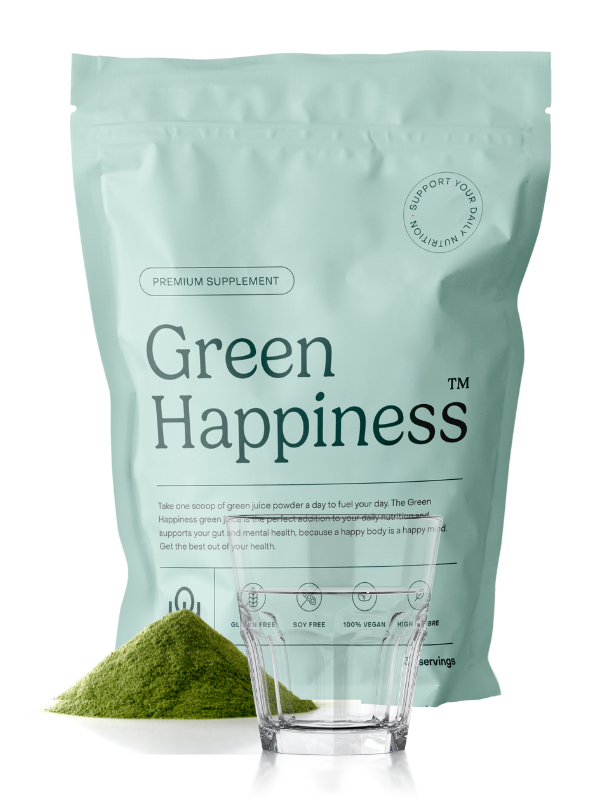
What you should know about your hormones
Hormones can be a bitch. Most of us know that. But what you may not yet know: hormones are, if in balance, responsible for many important processes in our bodies. Processes linked to a healthy body. Here is what you need to know about hormones.
Did you know that hormones control almost all processes in our body? Processes such as: mood, behaviour, emotions, sexual stimuli, growth, sugar levels and our metabolic system. If there is a disturbance, also called an imbalance, in the hormonal balance of your body, there is a big chance that a lot of processes get disturbed. And such an imbalance happens quite often. How many people do you know with migraines, a thyroid disease, PCOS, diabetes, PMS etc? All these disturbances have to do with hormones.
How do you know if your hormones are out of balance?
If so, diseases can develop in the body, such as thyroid disease, PCOS, diabetes, etc. But a hormonal imbalance can also cause small, vague complaints. A reduced sex drive, for example. Or reduced physical strength. Or sudden weight loss or even gain.
Crispijn Hartzema, author of the book Het Hormoongeheim, believes that you can bring your hormones back into balance yourself. He describes in his book several steps to do this.
One of these steps is to avoid hormone disruptors
Pseudo-hormones, xeno-oestrogens, hormonal disruptors and/or hormone modifiers are synthetic substances that act in the body like natural hormones, because their chemical structure is fully or partly similar to that of natural hormones, in particular to that of oestrogen,” reports Crispijn in his book.
There are around 100,000 different chemical substances on the market today and more are added every day. substances on the market and more are added every day. Some of them behave like hormones or have a disruptive effect on the hormonal balance. Many of these thousands of pseudo-hormones are incorporated into consumer products such as food, cosmetics, plastics, packaging, commonly used pesticides, etc. and then end up in the body, air, water and soil,” according to Het Hormoongeheim.
WHICH SUBSTANCES SHOULD I AVOID?
Pfoe. 100,000 different chemical substances, that’s quite a lot. How can you avoid 100,000 substances? Surely that is a hopeless task? Fortunately, it is not that hard.
- A large proportion of these substances can be avoided by avoiding plastic bottles and packaging (unless they are BPA and DHEP free!) and avoiding printing inks, adhesives, perfumed products and synthetic perfumes (these are phthalates!).
- It is also wise to choose natural cosmetics (and yes, that includes creams, shampoos and toothpastes).
- The contraceptive pill and other hormonal contraceptives such as the Mirena IUD and the hormonal rod are also hormone disruptors. Fortunately, there are many alternatives, such as the copper spiral.
- Two more substances that are important to avoid: parabens (most commonly used preservative in cosmetics, shampoo, conditioner, sunscreen, deodorants, toothpaste and food) and triclosan (used mainly in antibacterial products but also in lotions, toothpaste, deodorants and even in textiles, underwear and bedding).
FOOD
Diet can also have a big influence on your hormones.
Sugars
Crispijn starts with sugars. Not about fruit sugars, because they are good for you. But about refined sugars. If you regularly eat products with lots of sugars, such as bread, white rice, potatoes, pasta (starchy products) and refined sugars in soft drinks and other sweets, your body has to produce a lot of insulin to process them. So what should you eat according to Crispijn?
Bread substitutes: Oatmeal, raw crackers, kamut crackers etc.
Sugar substitutes: Products with stevia or lucuma.
Natural sweeteners: Dates, organic honey, coconut palm sugar.
Healthy grains: Quinoa, amaranth, brown rice, oats, millet, teff and buckwheat.
Fats
Then there are saturated and unsaturated fats. For your overall health and for the hormonal balance, it is important to eat the right fats. Because fats also produce hormones. It is also important to get rid of excess fat as much as possible, because most of the hormone disruptors are stored in it,” according to Het Hormoongeheim.
Which fats should you leave out?
- Deep-fried food
- Margarine
- Biscuits, pastry, cakes, candy bars
- Meat
- Milk
- Butter
- Cheese
- Ice cream
- White chocolate
- Corn oil
- Sunflower oil
- Palm oil
Clear. And which fats are good for your body?
- Olive oil (first press)
- Avocado’s
- Olives
- Unroasted nuts and seeds
- Coconut oil (first press)
Then, according to the author, it is still important to get those hormone disruptors out of your body by means of a detox. A 7-day detox, for example. But also by choosing organic food and paying attention to your breathing.
Click here for our detox e-book!
